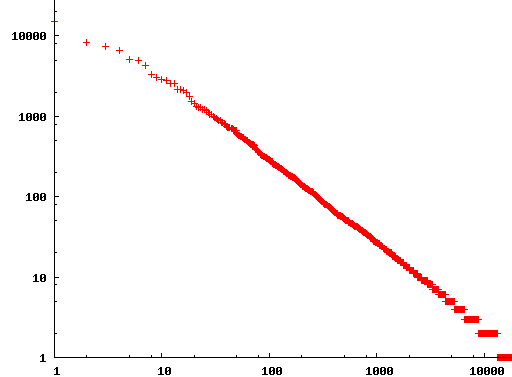- Word
Zipf's law
- Image

- Description
Zipf's law is an empirical observation that, in certain systems, if values (e.g., word frequencies in a text) are ranked from most to least frequent, each value is inversely proportional to its rank in the list. The term originates from the name of the American linguist George Kingsley Zipf, who noted the phenomena in reference to the frequency distribution of words in any given language, and the fact that the frequency of each word is inversely proportional to its rank in the list. This same model has been applied to various types of data, such as the relative populations of different cities, the income rankings of individuals, and the size rankings of corporations.
- Topics
- Statistics, Scaling
- Difficulty
- 1
